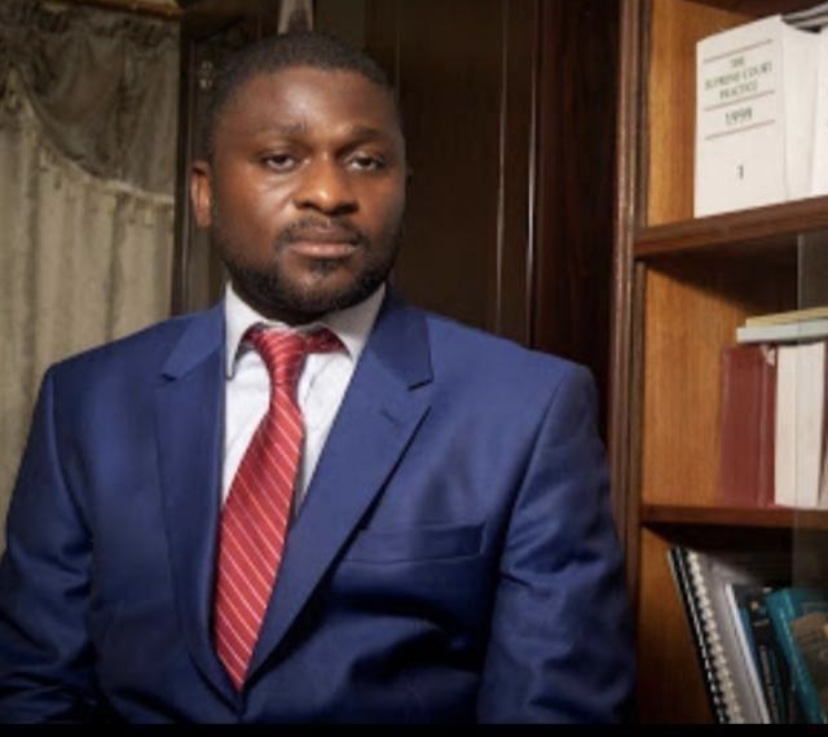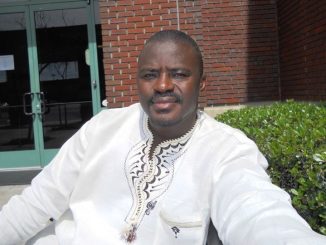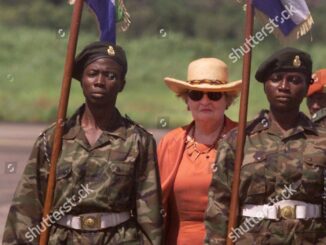
Book Review: ‘Electoral Politics, Laws and Ethnicity in Africa’
By Mohamed Sankoh (One Drop)
Recent happenings in Africa, in which countries explode into ethnic tensions and electoral disputes culminating into legal battles in those countries’ apex courts, have not only given relevance to Lawyer Emmanuel Saffa Abdulai’s new book, “Electoral Politics, Laws and Ethnicity in Africa”, but has made it a must read for African students of Political Science and Law.

In just 270 pages, divided into Four Parts and 13 Chapters, Lawyer Emmanuel Saffa Abdulai has written a book (Amazingly, his second in just under two years!) which is not only insightful but one that tries to dissect some of the reasons why certain events are taking place in Sierra Leone, Ghana, Nigeria, and Kenya before, during, and after elections are held. Through comparative perspectives, the author gives the reader an independent glance into how political parties are regulated in these African countries and the repercussions for such regulations.
But why has the author, a practicing lawyer who teaches Law at Fourah Bay College (FBC), decided to research and write on such important controversial topics? He, himself, gives the reader the answer in the preface of the book: “I have always been thrilled by socio-legal theories and fascinated by the interconnectedness of politics, history, and other social sciences. I am underpinning my research interest in the contours, intricacies, and beauty of the relationship between law and politics, economics, history, and many more…”
Thus, the author prepares the reader for the academic meal that will be served in the course of the intellectual banquet. The author takes the reader through the labyrinths of history intertwined with politics which most of the time ended in legal culs-de-sac. Serving as a starter in the would-be academic banquet, the author whets the reader’s appetite when he notes, in the preface, that: “Organizing elections in Africa has become a do-or-die battle. Politics and the rise to power still appear to be the only path to economic prosperity, given the entrenched corruption and an unabated sense of impunity in many African societies.
During elections, politicians often exhaust all their resources in an effort to get elected into public office with the hope of amassing greater wealth through ill-gotten means. The road to getting elected to public office is often rough, dangerous, and vicious….”
The above is elucidated in Part III where the author notes that: “The history of ethnicity in Sierra Leone’s politics is characterized by the divide and rule policies of the colonial administration, leading to tensions between various groups. In modern times, ethnicity remains a dominant factor in politics….(pg 167)” In this chapter also, the author meticulously gives historical backgrounds on ethnicity in the politics of Ghana, Nigeria, and Kenya.
Throughout the book, the author painstakingly laid bare the research materials on how ethnicity has, mostly, been the driving force, or being the influence, behind certain electoral laws and the resultant repercussions for the wellbeing of democracy in some parts of Africa. He even recommends that: “African countries like Ghana, Nigeria, Kenya, and Sierra Leone need [to] focus on their ethnic issues to balance their political factors….(pg 187)” And that, “the issue of politicization of the judiciary needs to be focused on to resolve the political conflicts of [these] countries….(pg 187)”. Here again, like many portions in the book, the author is playing the medical doctor by using his research stethoscope (if you will) to diagnose the problems and give prescriptions also.
Despite the monstrosity and hydra-headedness of ethnicity in the electoral politics of countless African countries, the author concludes that: “…elections have been and are still fundamental in growing and upholding democracy in Africa. They are doubtless key in promoting peace among nations and states, as well as promoting competition for democracy, if they are conducted within proper institutional and legal frameworks….(pg. 253)”
Lawyer Emmanuel Saffa Abdulai has written a book that has not only dissected some of the main reasons for violence and conflicts in African politics, but also recommended how these violence and conflicts can be minimized. The book, “Electoral Politics, Laws and Ethnicity in Africa”, is also instructive for African politicians who have, always, been the problems of Africa’s problems.
medsankoh@yahoo.com/+232-76-611-986; https://nationalistsl.com



